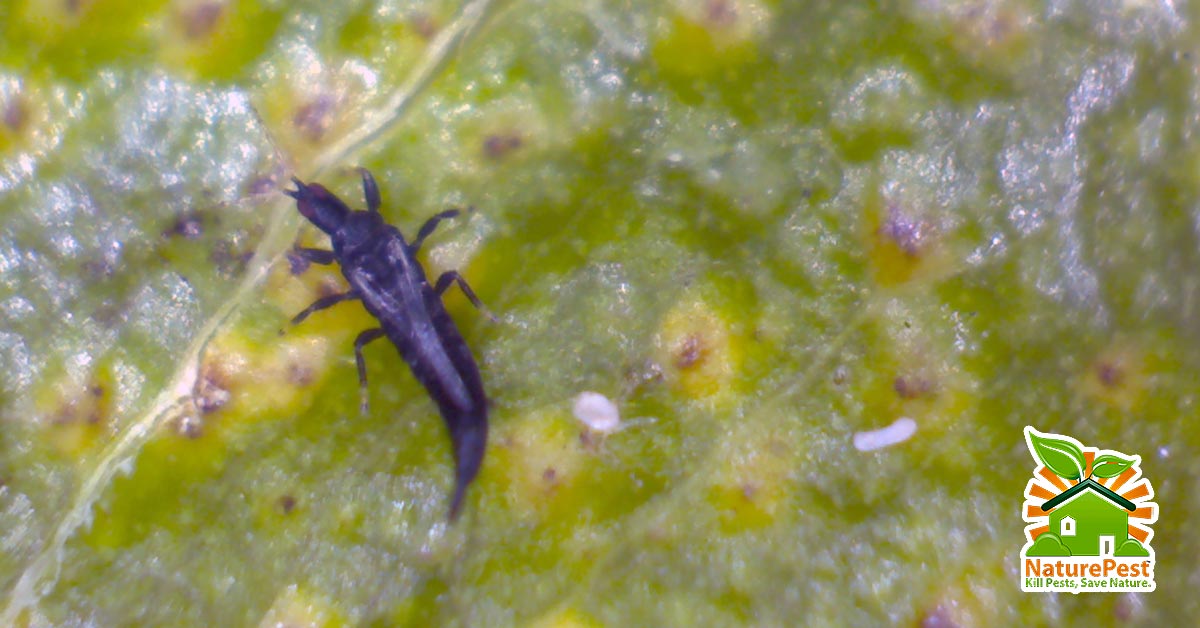Thrips on ficus among other biting insects in your garden.
Mosquitoes, bees and wasps aren’t the only stinging insect in your garden, thrips also bite and cause discomfort.

You walk by a Ficus shrub or hedge and you feel a sting in the back of your neck you quickly swat it with the palm if your hand and say those dang mosquitos but you look at your hand and see nothing only to feel another sting and this time you pick it off and it looks like something black like a ant. Except it’s not a mosquito and its not an ant, it’s thrips.
Thrips attack ficus and many other plants, trees and shrubs. On ficus thrips are noticeable only if you know what to look for, most people are unaware their ficus has thrips.
The way to know if your Ficus has thrips is to look for closed leaves, the thrips attacks the Ficus by leaf sucking sap out of it causing it to close, and this also protects the thrips from predators. If you upon a leaf you will see the dark black looking thrip crawling on the inside of the leaf. If an infestation is severe where you can count more than 12 closed leave in a square foot then you have a severe thrips infestation.
Pest control for thrips on ficus is quite simple, if you get the occasional infestation you can perform a foliar spray application of a natural product such as EcoVia with 3 weekly applications in order to get a knock down but to also break the pest life cycle, without breaking the cycle from egg, nymph to adult you will not get control.
If you get an infestation a month or so after performing the 3 weekly sprays then you have what is known as high pest pressure, for this persistent problem we recommend performing root drench treatment with the active ingredient Imidacloprid with a product like Dominion 2L.
At the lowest label rate you can achieve up to 1 year of control with one treatment, your first sign that the chemical is no longer in the system is you start seeing the closed leaves again after 9 months and should immediately perform another treatment. In order to prevent the thrips infestation you will need to perform this treatment at least once a year.
The closed leaves will remain closed and will not recover; eventually they will drop from the tree or shrub. This is also the same treatment we recommend for ficus whitefly control in Miami.







